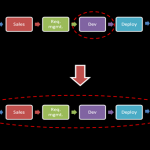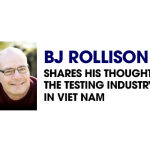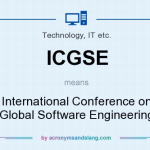Introduction
This article provides a business case for considering Vietnam as an offshore outsourcing destination. It starts by outlining a framework for evaluating potential outsourcing destinations. It then proceeds to evaluate Vietnam against the framework, demonstrating that Vietnam is worthy of strong consideration as an offshore outsourcing destination.
A Framework for Evaluating Outsourcing Destinations
A framework for evaluating outsourcing destinations does not have to be complex or elaborate. In fact, a simple framework that focuses on the key issues is probably far preferable and more effective. It allows the evaluator to focus their analysis on those metrics that should have the greatest impact on the success of the outsourcing effort.
The metrics that we feel will provide for an effective and thorough analysis are:
-
- Cost – Cost is typically the first early driver in any outsourcing effort. The desire exists on the part of the potential outsourcer to lower their costs. When evaluating costs it is important to understand that there are 2 types of costs for any outsourcing effort: labor costs, as well as overhead costs. You should not only compare the labor costs of potential outsourcing destinations against each other and against your domestic team, you should also make an estimate of the additional overhead costs associated with managing an outsourced effort.
- Workforce suitability – It is important to evaluate the workforce of potential outsourcing destinations. What is the educational attainment level? Is there a large enough pool of available workers? What is the rate of turnover (or churn) for technology related jobs?
- Stability (political, economic, ethnic, and religious) – The stability of potential outsourcing destinations is critically important. Instability introduces significant risk into any potential outsourcing. When evaluating stability you need to look at many different factors, including political stability, economic stability, and ethnic and religious stability.
- How long has the current government or form of government been in power? Is there significant political upheaval? Have there been any recent coups or rebellions where the government has changed hands in other than peaceful political means?
- What is the country’s relationship with their neighbors? Are there tensions? Have there been any recent conflicts or wars?
- What is the rate of economic growth (GDP growth)?
- What is the rate of foreign investment? Others willing to invest in a country is typically a very good sign.
- Is there any ethnic/racial tension or conflict?
- Is there any religious tension or conflict?
From a political standpoint:
From an economic standpoint:
From an ethnic and religious standpoint:
All of these factors can have an impact on the potential success of an outsourcing effort. Conflict or instability introduces the potential for work slow downs or stoppages. It can also have personal safety ramifications for individuals who may have to travel to the region. Remember that Americans can be favorite targets of insurgents and rebels because of their PR value (taking an American hostage gets the attention of the U.S. Government and press).
Changes in government can also lead to changes in government policies. What was once a “business friendly” country could quickly become business unfriendly under a new regime.
- Government business and intellectual property policies – You should evaluate the business and economic policies of the governments of potential outsourcing destinations. Do the labor, economic, development, and taxation policies create a favorable climate for business? Equally important is the protection of intellectual property. What are the intellectual property policies, laws, and enforcement like in potential outsourcing destinations?
- Facility with the English language – The ability to communicate effectively is critically important for the success of any outsourcing effort. You need to understand what level of English proficiency, both written and spoken, exists in potential outsourcing destinations.
- Fit with your overall strategy – The last criteria is one that is very often overlooked, with potentially disastrous results. You need to make a thorough evaluation of how well offshore outsourcing fits into your overall business strategy and business processes. Without a good fit, any offshore outsourcing efforts, to Vietnam or any other country, may be doomed to failure from the outset.
Evaluation of Vietnam as an Outsourcing Destination
Cost: Labor costs in Vietnam compare very favorably to other potential outsourcing destinations. For example, Vietnam’s salaries are over 30% less expensive for both IT outsourcing (ITO) and business process outsourcing (BPO) than India. Other Asian countries are even more expensive for ITO and BPO, and Eastern European countries are even more expensive again (source: neoIT as reported in Global Services, August 2006). Vietnam’s labor costs are also 90% less expensive than labor costs in the United States.
Workforce Suitability: Vietnam has a well educated and technically savvy population. According to the Vietnam Economic Times, 96% of Vietnam’s population is literate. In addition, 80% of the graduates from Vietnamese colleges and universities graduate with science degrees making Vietnam a particularly good destination for technology outsourcing.
The educational attainment levels of Vietnam’s workforce are further supported by government policies that place a strong emphasis on the importance of education as well as a cultural emphasis on education and receptiveness to training. As of 2004, there were over 200 colleges and universities in Vietnam, an increase of 60% during the six year period 1999 through 2005 (source: Vietnam Economic Times).
The Vietnamese workforce also enjoys more stability than is typical in other outsourcing destinations. Vietnamese businesses experience less than 5% turnover (churn) for IT-related positions. This compares very favorably to other outsourcing destinations such as India where churn is over 10%, and in some cases well over 10%.
Stability: From a political standpoint, Vietnam has enjoyed over thirty years of political stability. The current government has been in place since the reunification of Vietnam in 1975. Vietnam also has not experienced any major conflicts or tensions with its neighbors in almost thirty years (since 1978).
From an economic standpoint, Vietnam has a strong and robust economy. Vietnam’s gross domestic product (GDP) growth has averaged 7.4% over the past six years (up through 2005, source CEIC). Vietnam’s GDP growth is the second fastest in Asia (see: Vietnam’s Roaring Economy Is Set for World Stage in the New York Times). In 2005, foreign direct investment (FDI) in Vietnam was estimated to have reached nearly $5 billion (US dollars). This economic growth and investment compares favorably with other outsourcing destinations.
Vietnam is also relatively unique due to the absence ethnic and religious conflict. Almost 95% of the country is ethnic Vietnamese and over 80% of the population has no declared religion. Largely because of this, Vietnam has none of the social and religious conflicts that arise in other outsourcing destinations.
The kind of stability enjoyed by Vietnam is not true in many other outsourcing destinations. Thailand as recently as September of 2006 experienced a coup where the military unseated the standing government. India and Pakistan have a long and ongoing history of tension, conflict, and war over the disputed Kashmir region. In Sri Lanka, the Liberation Tigers of Tamil Elam (LTTE) and Sri Lankan military forces have clashed on many occasions recently and there is a U.S. Government travel warning in effect for Sri Lanka. There is a similar travel warning in effect for Indonesia “due to ongoing concerns about the possibility of terrorist attacks directed against American or other western citizens and interests.”
Government Business and Intellectual Property Policies: Vietnam abandoned it centrally planned economy twenty years ago in favor of free market economic reform. Since then, Vietnam has embarked upon business-friendly policies and laws to attract foreign investment. Vietnam is also well on its way to membership in the World Trade Organization (WTO). In the summer of 2006, a WTO news item declared “Pending entry into WTO Vietnam’s membership now in sight.”
Most notable are Vietnam’s efforts to protect intellectual property. Vietnam has largely been in TRIP (WTO Trade Related Aspects of Intellectual Property) compliance since 2002. As recently as the summer of 2006, Vietnam enacted legislation to come into full compliance with TRIP. The United States government has praised Vietnam “for the extensive revisions and updating of its intellectual property laws”.
Facility with English: From the standpoint of understanding English, one would not expect Vietnam to fare well. That would, however, be a mistaken notion. Vietnam actually does very well from an English proficiency standpoint. The first thing that helps Vietnam is that the Vietnamese language uses roman alphabets and characters. In addition, English is the most popular second language in Vietnam. Most graduates from Vietnamese colleges and universities are fluent in English. All of this serves to make Vietnam’s technology workers surprisingly competent communicating in English.
Examples of Companies in Vietnam
LogiGear Corporation: LogiGear has a significant presence in Vietnam. LogiGear has a software testing center in Ho Chi Minh City, the first and only US-led software testing center in Vietnam. LogiGear’s software testing center has expanded to over 150 employees in 2006 and provides outsourced software testing services to many US multinational companies. For more information see: LogiGear Expands Software Testing Facility in Vietnam.
Intel Corporation: In October of 2006, Intel Capital, the venture capital arm of Intel Corporation, announced that they were making a $36.5 million investment in FPT. Based in Hanoi, FPT is Vietnam’s largest software company.
Earlier in 2006, Intel also announced plans to build a $300 million chip assembly and testing factory in Vietnam’s Ho Chi Minh City.
Conclusion/Vietnam “Scorecard”
When looking at how Vietnam “stacks up”, it becomes clear that Vietnam is an offshore outsourcing destination that is worthy of strong consideration. On all of the framework’s metrics Vietnam scores very well.
| Metric | Grade |
|---|---|
| Cost |
|
| Workforce |
|
| Stability | Political:
Economic:
Ethnic and Religious Conflict
|
| Government Policies |
|
| Facility with English |
|



 Rob Pirozzi
Rob Pirozzi

















